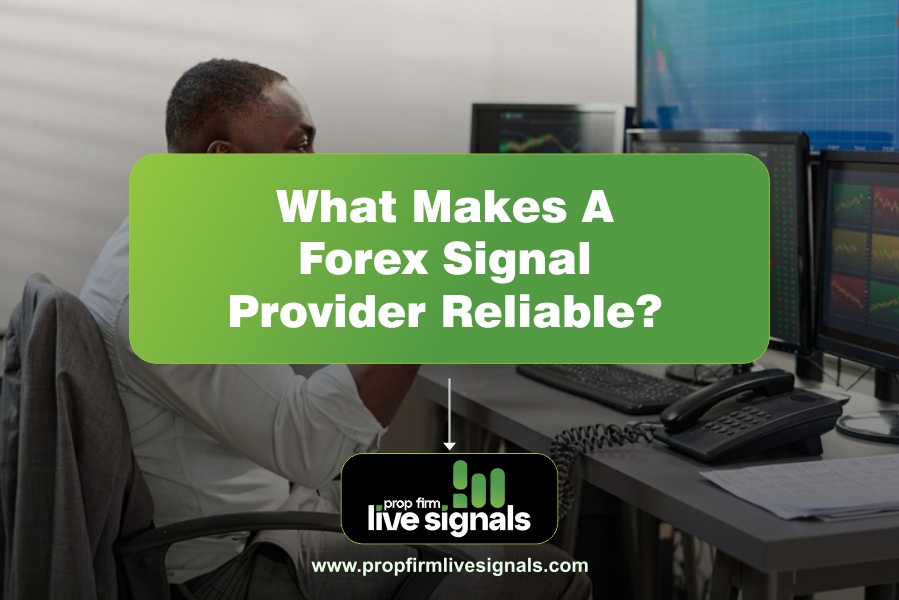This article will examine the key traits of trustworthy Forex signal suppliers and provide guidance on how to assess them.
Understanding Forex Signals
Forex signals are alerts that inform traders about potential trading opportunities. These alerts can be based on various analyses, including technical indicators, market trends, and economic news. Traders use these signals to make informed decisions about when to enter or exit trades. Given the volatility of the Forex market, having access to accurate and timely signals can be the difference between profit and loss.
Key Factors for Reliability
1. Accuracy
The foremost factor in determining the reliability of a Forex signal provider is accuracy. A provider must have a proven track record of delivering accurate signals that lead to profitable trades. This means that before subscribing to any service, traders should review the provider’s historical performance data. Look for providers who can demonstrate consistent accuracy
2. Transparency
Transparency is another critical aspect of a reliable Forex signal provider. Trustworthy providers openly share their trading strategies, methodologies, and past performance data with their clients. They should provide detailed information about how their signals are generated and be willing to answer questions regarding their processes. A transparent provider builds trust and allows traders to make informed decisions based on clear evidence.
3. Risk Management
Effective risk management is vital in Forex trading, and a reliable signal provider should prioritize it. This includes offering clear guidelines on position sizing, stop-loss levels, and risk-to-reward ratios. A good provider emphasizes capital preservation and encourages a disciplined approach to trading. By focusing on long-term profitability rather than short-term gains, they help traders manage their risks effectively.
4. Consistency
Consistency in performance is crucial for any Forex signal provider. Traders should seek providers who deliver profitable signals regularly rather than relying on occasional big wins. A consistent track record indicates that the provider’s strategies are effective over time and not just based on luck or market anomalies.
5. Communication and Support
Effective communication and customer support are essential for a positive trading experience. A reliable Forex signal provider should offer timely support through various channels, such as email, chat, or dedicated forums. They should be responsive to client inquiries and provide regular updates about market conditions and signal performance.
6. Flexibility
The Forex market is dynamic, with conditions constantly changing due to economic events, geopolitical developments, and market sentiment shifts. A dependable signal provider must demonstrate flexibility by adapting their strategies in response to these changes. This adaptability ensures that traders receive relevant signals that reflect current market conditions.
7. Value for Money
While cost shouldn’t be the only factor when choosing a Forex signal provider, it is essential to consider the value offered for the price paid. Reliable providers typically have transparent pricing structures without hidden fees or unexpected charges. Traders should evaluate whether the quality of signals justifies the subscription cost and whether they provide good value relative to competitors.
Evaluating Forex Signal Providers
When assessing potential Forex signal providers, traders should consider several steps:
- Research Providers: Start by conducting thorough research on various signal providers available in the market. Look for reviews from other traders to gauge their reputation and reliability.
- Check Performance History: Examine each provider’s performance history carefully. Look for documented results that showcase their accuracy over time.
- Test with Free Trials: Many reputable providers offer free trials or money-back guarantees. Take advantage of these offers to test their services without financial commitment.
- Evaluate Customer Support: Reach out to customer support with questions before subscribing to see how responsive they are. Good customer service can greatly enhance your trading experience.
- Review Risk Management Practices: Assess how each provider approaches risk management and whether their strategies align with your own risk tolerance.
In conclusion
Selecting a trustworthy Forex signal supplier is a crucial choice that can have a big impact on your trading performance. Traders can make well-informed decisions that improve their trading experiences by concentrating on important elements including accuracy, transparency, risk management procedures, performance consistency, efficient communication channels, adaptability in strategy, and overall value for money.
Having access to trustworthy information is crucial in a market that is constantly changing, such as Forex trading. You may increase your chances of success in trading and reduce the dangers of making bad decisions based on faulty signals by taking the time to choose the best signal source. Although no one can ensure trading success, you may increase your chances of long-term, steady outcomes by surrounding yourself with reliable sources.
Frequently Asked Questions (FAQs)
What is Forex?
Forex, short for foreign exchange, refers to the global marketplace where currencies are traded. It is the largest financial market in the world, with trillions of dollars exchanged daily. Forex trading involves buying one currency while simultaneously selling another, typically in pairs (e.g., EUR/USD).
How can I start trading Forex?
To start trading Forex, you need to follow these steps: Choose a Broker: Register for an account with a reputable Forex broker. Open a Trading Account: Complete the necessary documentation and fund your account. Download Trading Software: Most brokers provide platforms like MetaTrader 4 or 5 for executing trades. Learn the Basics: Familiarize yourself with trading strategies, market analysis, and risk management before making trades.
What is a stop-loss order?
A stop-loss order is an instruction to close a trade at a predetermined price level to limit potential losses. This tool helps traders manage risk by automatically exiting positions that move against them.
What is a limit order?
A limit order is an instruction to buy or sell a currency pair at a specific price or better. For example, if you want to buy EUR/USD at 1.1000 but only if it drops to that price or lower, you would set a limit order.




